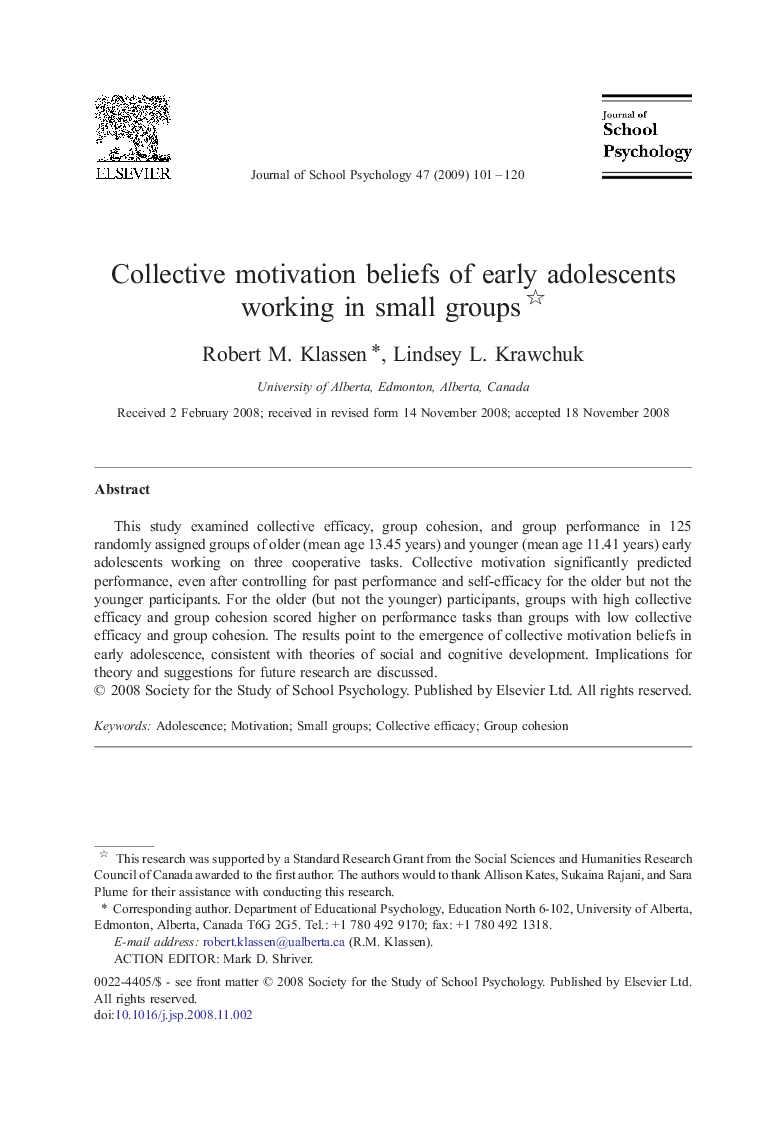| Article ID | Journal | Published Year | Pages | File Type |
|---|---|---|---|---|
| 363642 | Journal of School Psychology | 2009 | 20 Pages |
This study examined collective efficacy, group cohesion, and group performance in 125 randomly assigned groups of older (mean age 13.45 years) and younger (mean age 11.41 years) early adolescents working on three cooperative tasks. Collective motivation significantly predicted performance, even after controlling for past performance and self-efficacy for the older but not the younger participants. For the older (but not the younger) participants, groups with high collective efficacy and group cohesion scored higher on performance tasks than groups with low collective efficacy and group cohesion. The results point to the emergence of collective motivation beliefs in early adolescence, consistent with theories of social and cognitive development. Implications for theory and suggestions for future research are discussed.
